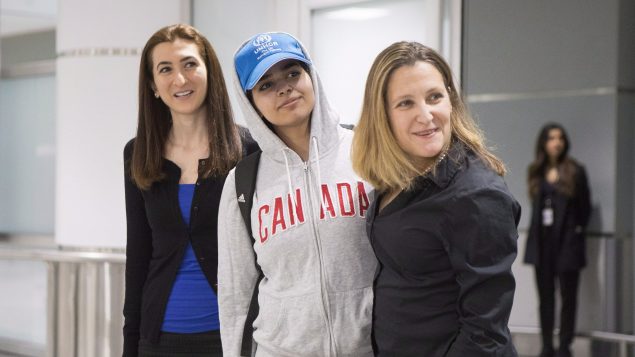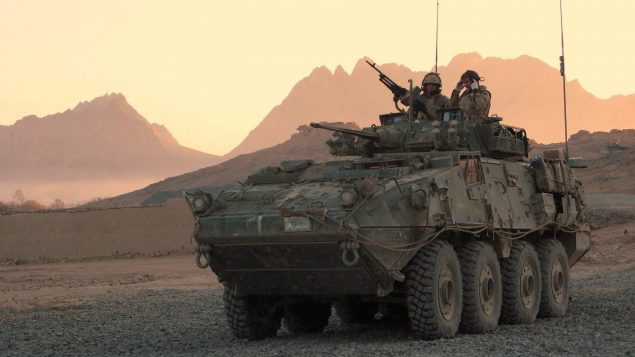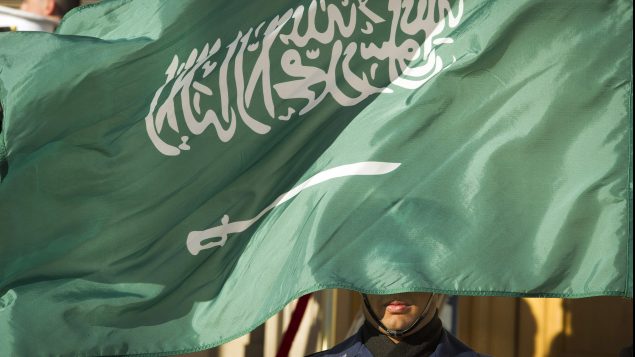Canada is “very concerned” by Saudi Arabia’s mass beheading of 37 citizens, Global Affairs Canada said Wednesday, but officials in Ottawa stopped short of condemning the execution described as “shocking” and “abhorrent” by the United Nations’ top human rights official.
“Canada opposes the death penalty in all forms and is very concerned by the mass execution of 37 Saudi citizens,” said a statement by Global Affairs Canada. “We join with the UN High Commissioner for Human Rights in expressing concern.”
Saudi Arabia on Tuesday beheaded 37 Saudi citizens, most of them minority Shiites, in a mass execution across the country for alleged terrorism-related crimes. It also publicly pinned the executed body and severed head of a convicted Sunni extremist to a pole as a warning to others.
“I strongly condemn these shocking mass executions across six cities in Saudi Arabia yesterday in spite of grave concerns raised about these cases by numerous UN Special Rapporteurs, the UN Committee on the Rights of the Child and others,” UN High Commissioner for Human Rights Michelle Bachelet said Wednesday.
“It is particularly abhorrent that at least three of those killed were minors at the time of their sentencing.”
Bachelet also urged the Saudi government to immediately launch a review of its counter-terrorism legislation and amend the law “to expressly prohibit the imposition of the death penalty against minors.”
The Saudi Interior Ministry said in a statement those executed had adopted extremist ideologies and formed terrorist cells with the aim of spreading chaos and provoking sectarian strife. It said the individuals had been found guilty according to the law and ordered executed by the Specialized Criminal Court in Riyadh, which specializes in terrorism trials, and the country’s high court.
Change of course?

Saudi teenager Rahaf Mohammed al-Qunun, centre, stands with Canadian Minister of Foreign Affairs Chrystia Freeland, right, and Saba Abbas from COSTI Immigrant Services, as she arrives at Toronto Pearson International Airport, on Saturday, January 12, 2019. (Chris Young/THE CANADIAN PRESS)
Ottawa’s muted response to the Saudi mass execution is in stark contrast to its previous statements on human rights issues in Saudi Arabia and more recently in Brunei where Canadian officials said they were “appalled” with the imposition of severe punishments under the country’s new Sharia penal code.
However, it’s not the first time Canadian officials bite their tongues when it comes to human rights abuses involving Saudi Arabia, said Anthony Fenton, a British Columbia-based researcher completing his PhD dissertation on the political and economic history of Canada-Saudi relations.
Ottawa was also silent when air strikes by the Saudi-led coalition killed at least 11 civilians, including children, in an attack on a residential area in Yemen’s Houthi-held capital, Sana’a, earlier this month, Fenton said.
“One can only speculate, but it’s plausible that they are taking extra care – even against the backdrop of yet another heinous mass execution carried out by the Kingdom – in light of what the CEO of General Dynamics stated yesterday, that the diplomatic crisis between Canada and Saudi Arabia is supposedly ‘in the process of being resolved,’” Fenton said.
“As such, an ill-timed tweet could be seen to potentially de-rail the ‘normalization’ of relations, assuming that they are, in fact, on track to do so.”
Diplomatic tiff

Saudi Arabia’s Foreign Minister Adel Al-Jubeir speaks during a news conference in Riyadh, Saudi Arabia August 8, 2018. (Faisal Al Nasser/REUTERS)
Relations between Canada and Saudi Arabia went into a tailspin after Foreign Affairs Minister Chrystia Freeland criticized the kingdom’s human rights record and called for the release of jailed women’s rights activists last August.
Saudi Arabia took a number of drastic diplomatic and economic measures designed to punish Canada for what Riyadh said was a “blatant interference” in its internal affairs, including expelling Canada’s ambassador to the kingdom, blocking imports of Canadian grain, and ending state-backed educational and medical programs in Canada, as well as cancelling flights to and from Canada.
However, despite the apparent meltdown in diplomatic relations between Canada and Saudi Arabia, neither Ottawa nor Riyadh showed any interest in disrupting their lucrative defence contracts.
Canada has a multi-billion contract to supply Saudi Arabia with hundreds of Light Armoured Vehicles (LAVs) produced by General Dynamics Land Systems Canada (GDLS-C) in London, Ontario.

A Canadian LAV (light armoured vehicle) arrives to escort a convoy at a forward operating base near Panjwaii, Afghanistan at sunrise on Nov.26, 2006. (Bill Graveland/THE CANADIAN PRESS)
The Liberal government of Prime Minister Justin Trudeau has resisted pressure by civil society groups and some opposition parties to cancel the LAV contract, which is expected to support about 3,000 well-paying jobs in Canada for the next decade, according to the Canadian Association of Defence and Security Industries (CADSI).
Officials at Global Affairs Canada did not respond to questions by Radio Canada International whether the latest mass execution in Saudi Arabia would affect Canada’s arms exports to the kingdom.
“The lack of comment regarding continuing arms exports is similarly unsurprising,” Fenton said. “According to Statistics Canada data, upwards of half a billion dollars’ worth of ‘tanks and other armoured fighting vehicles’ have been exported to Saudi Arabia since the diplomatic spat began, along with approximately $10 million worth of rifles.”
Meanwhile, other Canadian arms frequently appear in footage of battles between Saudi and Saudi-backed forces and Yemeni rebels in Yemen, Fenton said.
With filed from The Associated Press







For reasons beyond our control, and for an undetermined period of time, our comment section is now closed. However, our social networks remain open to your contributions.